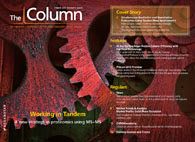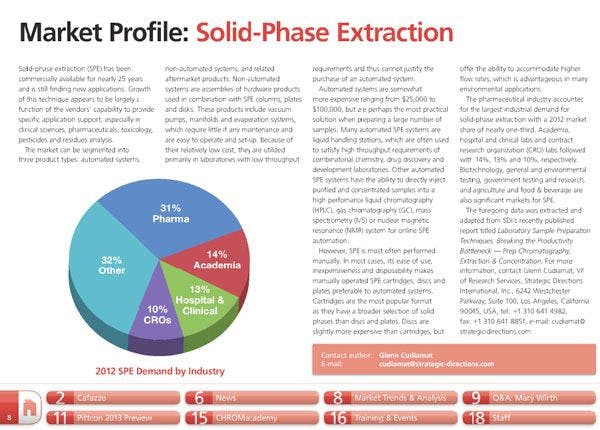APIX goes miniature
Analytical Pixels Technology (APIX) (Grenoble, France) has teamed up with research organisations, CEA–Leti (Grenoble, France) and Caltech (California, USA).

Analytical Pixels Technology (APIX) (Grenoble, France) has teamed up with research organisations, CEA–Leti (Grenoble, France) and Caltech (California, USA).
CEA–Leti and Caltech have been working together for seven years to develop silicon nanoscale sensors and complementary devices. Nanoscale silicon components are key to the development of miniature gas chromatography devices.
“The patent portfolio licensed to APIX along with the underlying technology is the result of many years of advanced research performed in our institution within the Kavli Nanoscience Institute under the leadership of Professor Michael Roukes” said Frederic Farina, chief innovation officer and executive director of technology transfer at Caltech.
APIX was set up in 2011 to manufacture and market technology produced from the partnership. As part of this new licensing agreement, the three partners will continue development and further improvements of the technology. Introduction of the products is expected in early 2013, with an initial focus on the industrial and petrochemical markets.
For more information please visit:
www.apix-technology.com
This story originally appeared in The Column. Click here to view that issue.













